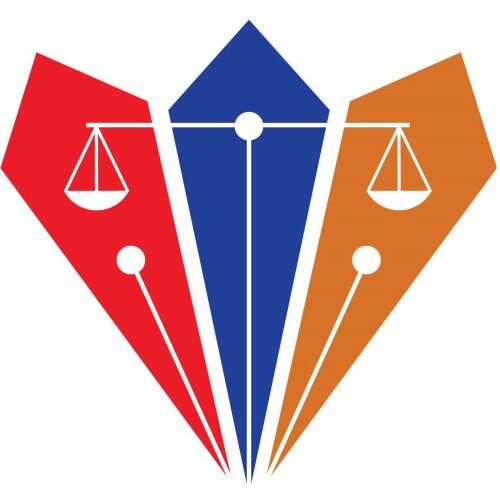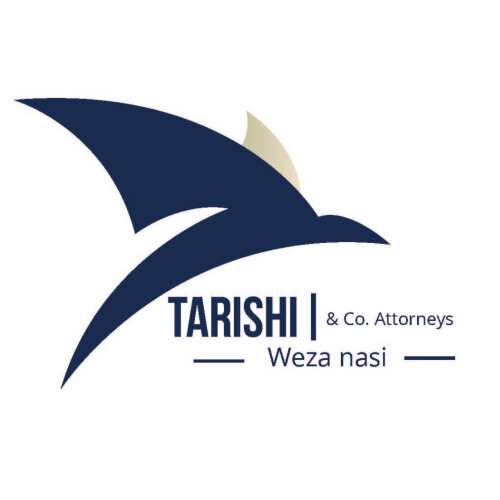Best Nonprofit & Charitable Organizations Lawyers in Zanzibar
Share your needs with us, get contacted by law firms.
Free. Takes 2 min.
List of the best lawyers in Zanzibar, Tanzania
About Nonprofit & Charitable Organizations Law in Zanzibar, Tanzania
Nonprofit and charitable organizations in Zanzibar, Tanzania, play a crucial role in fostering social development, addressing community needs, and promoting charitable activities. These entities are typically established for philanthropic, educational, cultural, or religious purposes and are required to operate without profit motives. The legal framework governing these organizations ensures they adhere to regulations that promote transparency, accountability, and sustainable operations. In Zanzibar, nonprofit entities must register with the respective authorities and comply with both local and national legal requirements, navigating the complexities of tax obligations, governance, and reporting standards.
Why You May Need a Lawyer
Engaging with legal counsel can be essential for nonprofit and charitable organizations in various scenarios, such as:
- Formation and Registration: Establishing a nonprofit involves intricate procedures that require compliance with legal standards - a lawyer can help navigate these steps.
- Governance and Compliance: Lawyers ensure adherence to regulations, bylaws, and governance policies, reducing the risk of legal challenges.
- Tax Issues: Nonprofits may benefit from tax exemptions; understanding and applying these correctly often requires legal expertise.
- Drafting and Reviewing Contracts: Whether dealing with donors, employees, or service providers, ensuring that contracts are legally sound is crucial.
- Dispute Resolution: When conflicts arise, legal expertise is crucial for mediation, arbitration, or litigation.
Local Laws Overview
Zanzibar has specific legal statutes that govern nonprofit and charitable organizations. Key aspects include:
- Registration Requirements: Organizations must register with the relevant Zanzibar authorities, such as the Registrar of Societies, ensuring legal recognition.
- Legal Structure: Organizations can choose between different legal forms, such as societies, trusts, or companies limited by guarantee.
- Governance: There are strict guidelines on governance structures, requiring a clear board of directors and operational guidelines.
- Financial Reporting: Transparency is a must; organizations need to maintain proper financial records and submit annual reports.
- Employment Laws: Compliance with local labor laws, including employment terms, wages, and worker rights, is mandatory.
Frequently Asked Questions
1. What is the first step in forming a nonprofit in Zanzibar?
The first step is to choose a suitable legal structure (e.g., society or trust) and then proceed with registration through the Registrar of Societies.
2. Are there specific tax exemptions available for nonprofits in Zanzibar?
Yes, nonprofits may qualify for certain tax exemptions, but these require a formal application and adherence to specific guidelines.
3. Do nonprofits need to have a board of directors?
Yes, a formal board of directors is required to ensure proper governance and accountability of the nonprofit's operations.
4. How often must nonprofits submit financial reports?
Typically, nonprofits are required to submit annual financial reports to demonstrate transparency and fiscal responsibility.
5. What happens if an organization fails to comply with local laws?
Non-compliance can lead to penalties, including fines, deregistration, or other legal actions.
6. Can a foreign entity establish a nonprofit in Zanzibar?
Yes, foreign entities can establish a nonprofit, but they must comply with both local laws and any additional requirements for foreign registration.
7. What are the key differences between a society and a trust in Zanzibar?
A society is typically a larger organization engaged in a broad range of activities, while a trust often focuses on a specific charitable purpose, with different legal obligations.
8. Is legal assistance necessary for drafting a nonprofit's bylaws?
While not mandatory, legal assistance is highly recommended to ensure bylaws comply with legal standards and align with the organization's goals.
9. Are nonprofits in Zanzibar required to conduct audits?
Yes, most organizations must conduct regular financial audits to maintain transparency and accountability.
10. Can nonprofits engage in commercial activities?
Yes, some commercial activities are allowed, but profits must be reinvested to further the organization's mission.
Additional Resources
Several resources and organizations can provide assistance and information:
- The Registrar of Societies: The main body for registering and maintaining official records of nonprofits.
- Zanzibar Law Society: Offers legal advice and representation for various legal issues.
- Ministry of Finance and Planning: Provides guidance on tax obligations and exemptions.
- Nonprofit Networks: Local and regional networks can offer support, resources, and networking opportunities.
Next Steps
If you require legal assistance for a nonprofit or charitable organization in Zanzibar, consider taking the following steps:
- Consult with a Lawyer: Engage with a legal professional specializing in nonprofit law for tailored advice.
- Conduct Due Diligence: Research the relevant legal requirements and ensure all compliance measures are understood and applied.
- Prepare Documentation: Ensure all necessary documents are in order, including registration papers, bylaws, and financial records.
- Engage with Local Bodies: Approach local government departments and bodies for advice and support related to your nonprofit's operations.
Lawzana helps you find the best lawyers and law firms in Zanzibar through a curated and pre-screened list of qualified legal professionals. Our platform offers rankings and detailed profiles of attorneys and law firms, allowing you to compare based on practice areas, including Nonprofit & Charitable Organizations, experience, and client feedback.
Each profile includes a description of the firm's areas of practice, client reviews, team members and partners, year of establishment, spoken languages, office locations, contact information, social media presence, and any published articles or resources. Most firms on our platform speak English and are experienced in both local and international legal matters.
Get a quote from top-rated law firms in Zanzibar, Tanzania — quickly, securely, and without unnecessary hassle.
Disclaimer:
The information provided on this page is for general informational purposes only and does not constitute legal advice. While we strive to ensure the accuracy and relevance of the content, legal information may change over time, and interpretations of the law can vary. You should always consult with a qualified legal professional for advice specific to your situation.
We disclaim all liability for actions taken or not taken based on the content of this page. If you believe any information is incorrect or outdated, please contact us, and we will review and update it where appropriate.









